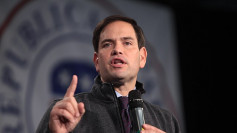Elon Musk, Tesla chief executive officer, said Tuesday in a Twitter exchange with Democratic Sen. Elizabeth Warren that his income tax bill will be the largest in history.
Warren and Musk are currently engaged in a full-scale Twitter showdown. Warren referred to the world's wealthiest person as a "freeloader" because he had paid no income taxes in recent years.
Musk responded by telling the Massachusetts senator to "stop projecting" and referring to her as "Senator Karen" for criticizing him for not paying enough taxes.
The senator has long argued for increasing taxes on the wealthy by levying a tax on their assets, rather than merely their income.
Following Musk's crowning as Time Magazine's Person of the Year for 2021, Warren protested that the billionaire should be paying more taxes.
"If you opened your eyes for two seconds, you'd notice I'm paying more taxes this year than any American in history," Musk tweeted.
Although several Democratic leaders have expressed support for its implementation, the U.S. Congress has yet to enact a wealth tax.
"Let's fix the rigged tax law so that The Person of the Year pays taxes and stops freeloading off the rest of us," the senator said on Twitter.
"You remind me of when I was a child and my friend's irate mother would suddenly yell at everyone for no reason," Musk responded. Musk has never shied away from a Twitter spat.
Musk is predicted to be valued $251 billion by Forbes' Real Time Billionaires. However, according to a ProPublica investigation, he and other billionaires paid no federal income taxes in 2018.
Musk earned very little taxable income that year, as he did not sell any of his stock and did not get a salary or bonus.
Musk has been aggressively selling Tesla shares since announcing on social media last month that he would be selling 10% of his stake.
Since October, he has sold about $13 billion in Tesla stock, which will be taxed. According to CNN, Musk will owe at least $7.5 billion in taxes this year.
Musk's net worth is primarily derived from his stake in Tesla, although his stake in his other company, privately held SpaceX, is also substantial. Both entities have benefited greatly from American taxpayer support over the years.
Meanwhile, Musk might be required to pay up to $50 billion in taxes over the first five years if Democrats pass into law the billionaire tax as part of Build Back Better.






